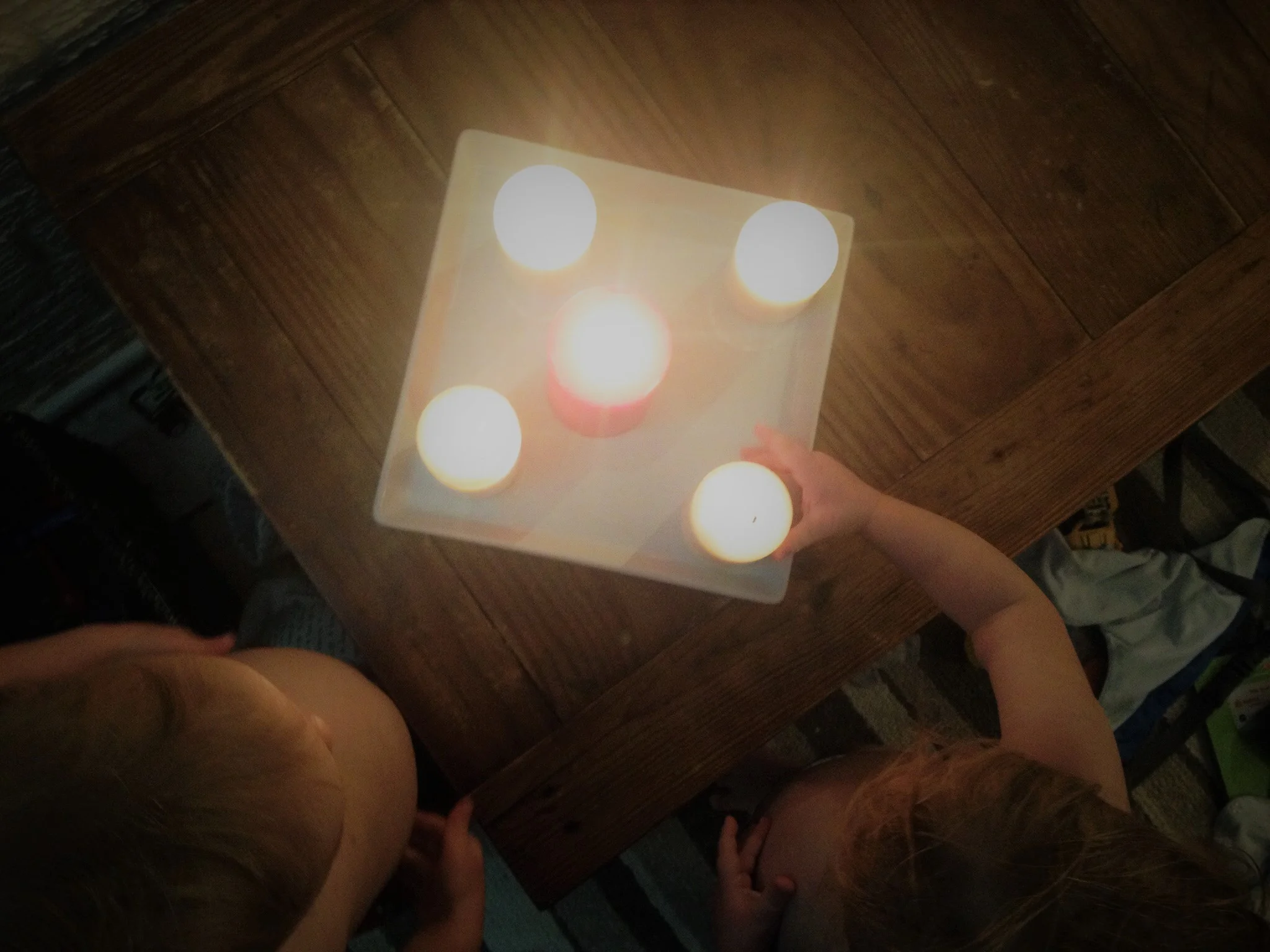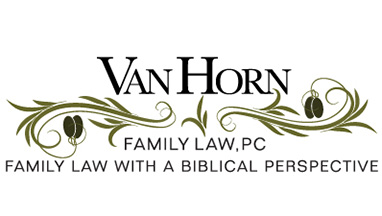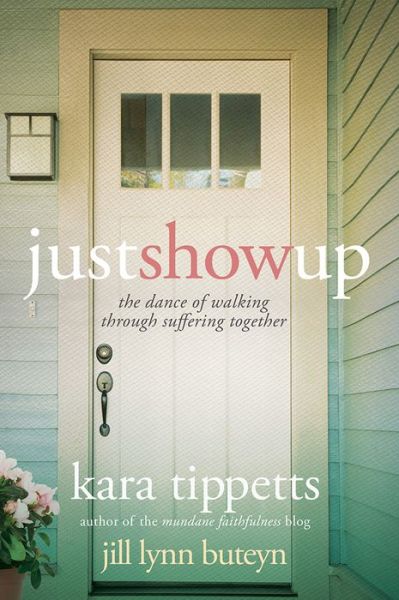To the one who is bracing herself for the Advent season, I see you.
Week after week, Sunday after Sunday, you rise early to a house full of children or roommates or a home empty with echoes. You will yourself out of bed and into the shower, wishing the hot water could rinse away the weary weight you carry. You dress and head to church, rehearsing in your head what you’ll say when people ask you how you’re doing and why you haven’t signed up for the fundraiser/bible study/sunday school class. You successfully arrive a few minutes late to slip in unnoticed among the people who have been your closest friends and family. They are experiencing God in a powerful way, earnest voices ring out with joy and passion, arms raising around you. You spend the time fidgeting and battling your cynicism (do they really feel something that powerful?) and trying to figure out just how much you need to participate to keep the questions at bay. Because, let’s face it, nobody wants to hear about your deconstructed faith during the passing of the peace.
And you do want to feel it, what they have. You want to feel at home among these people; and in so many ways, you still do. They bring you meals when you’re sick, and you plan their baby showers, and you all gather together on Thursdays for small group. You are a family. To admit you aren’t sure their dad is your dad would mean giving up this beautiful community. Just the thought brings tears to your eyes. You cannot lose them. Everything is so hard already—what would you be without your family?
I see you.
Or maybe you don’t go at all anymore. You did the whole charade for a while, trying to make it feel real, grasping for what used to be. But now you sleep in on Sundays and hard-eye-roll at anybody who tries to guilt you into coming back. Why show up for something that you can’t will yourself to believe anymore? Why keep pretending at all the bible studies and small group gatherings and special women’s breakfasts? There were a few times when you let your guard down and your questions and longings bubbled to the surface… and they were met by blank stares and confused smiles, as the people you love tried to connect your question about the nature of God in the universe with the pre-planned topical bible study for the evening. So you just stopped going. It felt too dishonest. Too exhausting.
I see you.
I know both of those places well. The doubts that seep uninvited into every corner of your heart like damp winter cold, convincing you that spring is just a dream and the best you can do is huddle down and try to stay alive. I know the loneliness that follows. People knock on your door, inviting you to join your regular community activities—seemingly unaffected by the never-ending winter that has consumed your hope. And then eventually they stop knocking, your grief or doubt or fear being too much for them to wade into. Some people call this a Dark Night of the Soul—a season of spiritual depression (which may also be accompanied by psychological, physiological depression) that casts a shadow of doubt over even our most fiercely held beliefs. It can be so isolating and hopeless, so hard to explain or invite others into.
And for good reason. It is hard to walk with someone who is journeying through heavy things. When there is some glimmer of hope on the other side—an answer, a treatment, peace after a loss—we can usually muster the courage to push through with those we love. But, when there is nothing to be managed, no way to trick the heart back to faith, no way to answer all the questions or the hurt, the waiting and walking-with get really hard. It seems like too few faith communities recognize this struggle as an opportunity for the gospel they love. Doctrinal statements and western cultural norms prioritize commitments to certainty over the work of God in the struggles of their congregants.
If you have been on the painful side of a door closed in your face because you could not muster the faith or doctrinal conviction to walk through it, I see you. This is a failing of the church, not a personal moral failure. The gospel should free believers to embrace the downtrodden, to gird up the weak. Advent reminds me, year after year, that you and I and these churches we have been hurt by, we are all together struggling to learn to wait the right way for our promised peace.
-----------
I grew up in a doctrinally passionate liturgical faith community, and (even with all my faith baggage), Advent is the one time each year where I feel at home. As we sing Christmas hymns and light the candles, I feel deeply connected to a community of faith across the ages. Belief momentarily transcends the explainable and moves into that sacred space of trust and hope. The themes of longing and wonder and waiting resonate deeply with me. Some days I see myself as one of the wise men, traveling from far off to see if it can possibly be true: hope incarnate. More often, I am the innkeeper's wife who is running herself ragged taking care of all the extra guests, totally pissed to hear that some girl is giving birth in my garage.
But I’m curious.
On my best days, that curiosity has me tinkering with the edges of faith. I’m meeting with a spiritual director to help sort out some of the more complicated questions and heartaches my faith experience has left me with. He gently encourages me to keep leaning in. To find moments when prayer feels honest. To make space for meditation and rest. He has helped me to see what so many saints before me have learned through their own dark nights: being faithful to the journey is far more beautiful and life-giving than claiming certainty.
Certainty doesn’t deliver what it promises. When that first foundation-rattling question quakes through your heart, certainty only serves as a measuring tape showing the distance between what you used to believe and where you are now scattered. It can’t answer the questions that burn deep within us or even offer the peace and hope to guide you forward.
And yet, endless uncertainty can’t satisfy either, the apathy and shadows overtake us as we wander alone. So here is what I am learning to trust: as much as it is possible, holding the doubts and fractured bits of our former faith with open hands is the only honest way to reorient our lives towards the things the doubts reveal. And with our open hands, we can reach out to others for help navigating the journey. A journey towards hope.
After about a year of lonely wandering through the fog of uncertainty, I have found my way into a new church community—one where I’ve been extended the welcome both to participate when it feels honest and to seek rest when it doesn’t. I’m finding the courage to share my story of faith, and my vulnerability is met with nods of understanding and similar confessions of doubts and struggle. It feels like Hope. Like the Jesus I once knew—the Jesus I am hoping to find again.
--------
Advent is for those of us who doubt. Those of us who long with all the prophets and saints for the kingdom that was promised, trusting that even as the darkness presses in, light is not far off and will show us the way.
Because faith is funny and not at all linear, and because we can be practitioners and doubters and leaders all at once, I’ve been collaborating with a friend on an advent liturgy and workshop for our church. I love this introduction to this season, written by The Work Of The People:
The word “advent” comes from the Latin word, meaning arrival. This season attempts to turn our hearts back in order to look at the arrival of the Christ child and to turn our hearts forward in order to anticipate the arrival of the Christ King. Whenever we are expecting a visitor, there is always a sense of waiting, anticipation, and hope. However, there are also the feelings of anxiety, dread, and fear. What if things don’t turn out as planned? For some, the wait can be long and difficult.
In the coming weeks, we will use liturgical prayers and pieces to help tune the heart to the pitch of proper waiting. They are to provide the right tension between anticipation and expectation. They do not seek to fill the gap and longing, but to help us to know God’s presence in these times.
Tune our hearts to the pitch of proper waiting. For those of us whose hearts wait year round for faith, for a place at the table, for peace—this is our liturgy of Hope. If no one has yet extended the invitation, Advent is for you, weary traveler. I encourage you to set aside some time each week this month to meditate on the Hope you long for. Light a candle. Play some soothing music. Find a comfortable posture—curled up on a couch or seated at a table or maybe even doing yoga on your living room floor. I believe it is in making space for these expressions of our deep doubts and hurts and longings that we will find the peace we are searching for.
So let us Advent together. With hope for those who are weary, with sorrow for those who struggle, with hands joined in comfort and joy. Shalom.
Advent resources for those who struggle with belief:
Bright Evening Star by Madeline L’Engle
Guided Advent meditations by Christine Squires
The Work of the People meditative videos
Sacred Ordinary Days Podcast, a practical study of the seasons of the church year and accompanying practices of faith
Praying in Color, the meditative practice of prayer through coloring
Julianne is a mom to twin toddlers, wife to a practitioner of thoughtful questions, a wanna-be mystic, a writer, an introvert, a baker, a naptime activist, a doubter, a ponderer and sometimes an overshare-er. She writes occasionally about the intersection of all these things at woodlandfamilyblog.wordpress.com.







